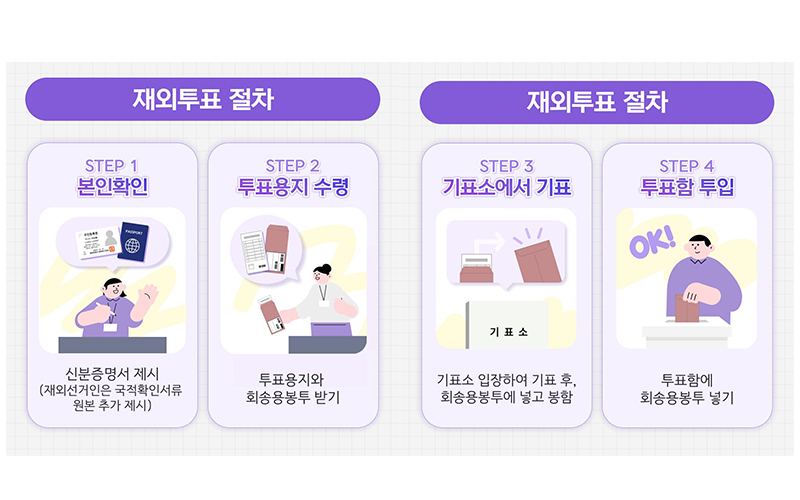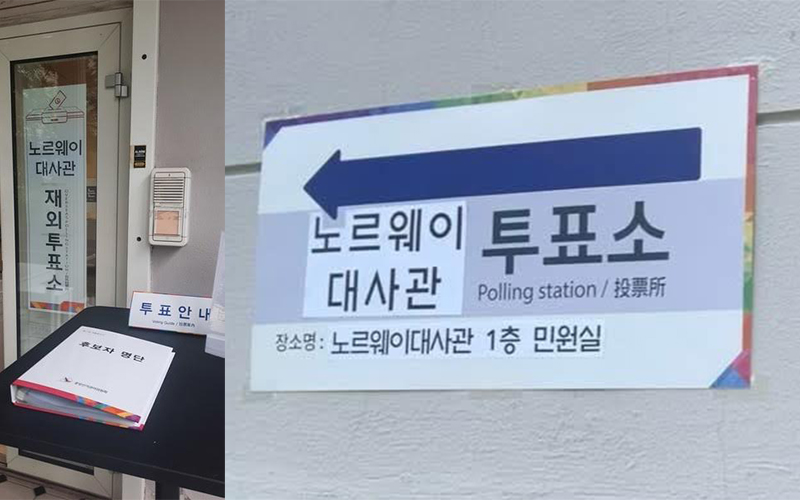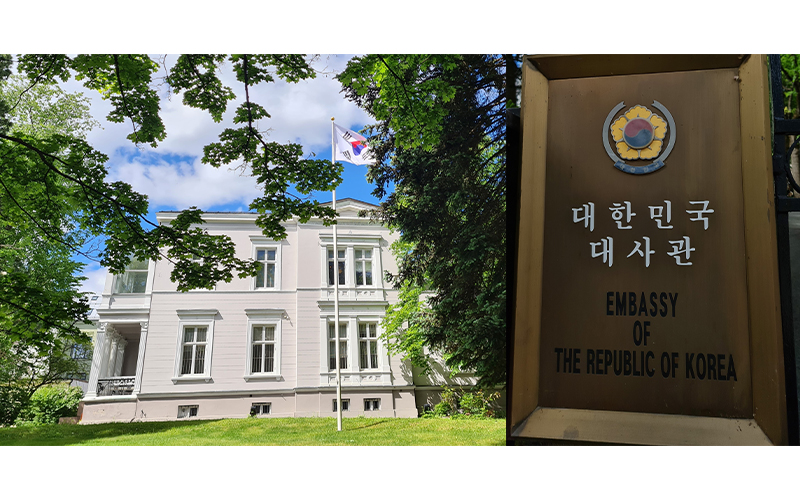The 21st presidential election for the Republic of Korea is just around the corner and scheduled for June 3, 2025. Following the impeachment of President Yoon Suk Yeol in April, the nation is set to elect a new leader, with overseas voting playing a significant role in the electoral process.
Overseas voting commenced on May 20 and concluded on May 25, with 223 polling stations across 118 countries. A total of 258,254 overseas voters were confirmed for this election which is a 14.2% increase compared to the 20th presidential election. According to the National Election Commission (NEC) the number for overseas voters shows Asia with 128,932 (49.9%), Americas with 75,607 (29.3%) and Europe with 43,906 (17.0%).

Card news shared on NEC social media - Overseas Voting Procedure: Step 1: Identity Verification, Step 2: Receive Voting Materials, Step 3: Mark Your Ballot in the Voting Booth, Step 4: Submit Your Ballot (Image credit: National Election Commission Official Instagram account @nec1963)
The overseas voting process required voters to present valid identification, which may be a passport, a permanent resident card or visa at designated polling stations, such as an embassy or consulate. For the first time, polling stations were established in countries like Cuba, Luxembourg, Lithuania, and Estonia, reflecting Korea's expanding diplomatic presence.

May 2025 - The polling station at the Embassy of the Republic of Korea to Norway in Oslo. (Image credit: Korean Embassy, used with permission)
According to Statistics Norway (ssb.no), there were 1,446 Korean nationals residing in Norway as of March 7, 2025. However, only a small percentage of them are eligible to vote. This depends on factors such as age and voter registration status. Korea and Norway have maintained diplomatic relations since 1959 and the Korean Embassy in Oslo plays an important role in supporting the Korean community, including facilitating overseas voting during national elections.
Wanting to understand how overseas Koreans are engaging with this election, I conducted an anonymous 10-question online survey to gather insights into how they perceive recent political developments in Korea. Participants from North America, Europe, and parts of Asia completed the survey.
Several Koreans mentioned that the recent impeachment sparked deeper interest in the election. A few said they had been following events loosely in the past, but the unexpected change in leadership prompted them to pay closer attention.

May 2025 - Front view of the Embassy of the Republic of Korea to Norway.
When asked about their thoughts on the impeachment, opinions were somewhat mixed. Some saw it as a necessary action that reflected Korea’s commitment to democratic accountability. Others felt conflicted or unsure, expressing concerns about the country’s stability and international image. A few admitted they had not followed the process closely enough to form a strong opinion.
The survey also explored how connected participants felt to current events in Korea. Many expressed a deep sense of attachment to their homeland and said that even though they live far away, they still care about what happens. Whether they were born there or have roots through family and culture, their connection clearly influences how they view political issues, especially when it involves national leadership and trust.
According to the survey, 47% of the participants said they had voted during the overseas voting period. However, others pointed out challenges like lack of information or limited access to polling resources abroad. In some cases, traveling to the nearest polling station means taking a plane to another country. This feedback suggests that making the voting process easier for overseas Koreans could help strengthen their involvement.
For the final question, I left it open and gave people a chance to freely share anything on their minds. Responses ranged from cautious optimism to disappointment. Some called for more transparency and fairness in Korean politics. Others expressed gratitude for being able to share their voices, saying it made them feel more connected to their homeland even from afar.

Card news shared on NEC social media encouraging overseas Koreans to vote. (Image credit: National Election Commission Official Instagram account @nec1963)
This survey showed how engaged and thoughtful overseas Koreans are when it comes to the future of Korea. By sharing their voices, they are playing an important role in the development of political awareness overseas, something that truly matters in the end.
Early voting in Korea was from May 29 to May 30 where 3,568 polling stations opened nationwide. Soon, the nation will find out who the next president of the Republic of Korea will be.
SOURCE:
https://www.nec.go.kr/site/eng/ex/bbs/View.do?cbIdx=1270&bcIdx=277578
https://www.korea.net/NewsFocus/policies/view?articleId=272380
https://world.kbs.co.kr/service/news_view.htm?Seq_Code=193158
How about this article?
- Like0
- Support0
- Amazing20
- Sad0
- Curious0
- Insightful0


